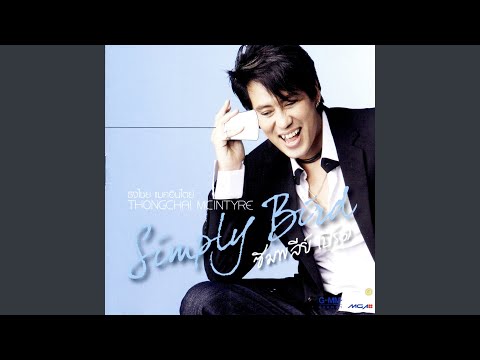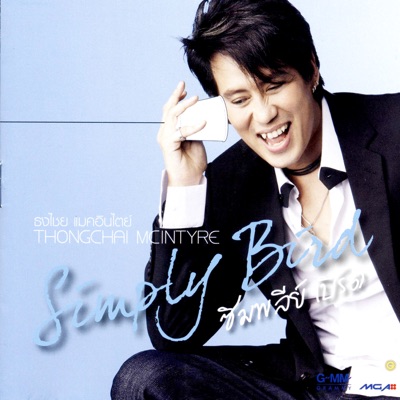Exploring จับเจ่า: Unraveling the Depths of a Thai Linguistic Phenomenon
Etymology and Definition
Etymology and Definition
The term “จับเจ่า” holds a unique place in the Thai language, capturing a blend of linguistic nuances and cultural significance. Breaking down the term, “จับ” translates to “catch” or “seize,” while “เจ่า” refers to a boss or leader. When combined, “จับเจ่า” takes on a meaning that goes beyond its literal translation, suggesting a subtle act of seizing authority or control.
To establish a comprehensive understanding, reference to authoritative Thai language dictionaries is essential. The term is featured in dictionaries such as Longdo and the Royal Institute, shedding light on its linguistic intricacies. Longdo defines “จับเจ่า” as an idiomatic expression denoting the act of taking charge or asserting control over a situation, often used informally in colloquial Thai.
The Royal Institute’s dictionary further reinforces this definition, emphasizing the term’s colloquial nature and its roots in everyday Thai conversation. The multifaceted nature of the term adds depth to its meaning, making it a phrase that resonates within the cultural fabric of Thailand.
Cultural Significance
Cultural Significance
Delving into the cultural significance of “จับเจ่า” unveils its deep-rooted connections within Thai society. Historically, the term finds its origins in traditional power dynamics, reflecting the importance of authority and leadership. The act of “จับเจ่า” may not merely refer to seizing control but can also embody a symbolic gesture of assuming a leadership role with confidence and decisiveness.
Within Thai culture, where respect for hierarchy and authority is deeply ingrained, the term carries a weight that extends beyond its literal meaning. It reflects not only the action of taking charge but also the expectations and responsibilities that come with assuming a leadership position.
The cultural significance of “จับเจ่า” is also evident in ritualistic and symbolic contexts. In ceremonies or events where a leader must emerge, the phrase may be invoked to symbolize the rightful takeover of authority. This intertwining of language and culture solidifies the term’s role as more than just a linguistic expression but as a cultural symbol.
Common Usage and Examples
Common Usage and Examples
In the realm of everyday Thai language, “จับเจ่า” is a phrase that resonates across various contexts. Its informal nature makes it a versatile expression used in both formal and informal settings. Let’s explore some examples to illustrate the diverse contexts in which the term is commonly employed:
Example 1: Workplace Dynamics
In a professional setting, an employee who takes the initiative to lead a project might be praised by colleagues saying, “เขาจับเจ่าทีมนี้ได้ดีมาก” (He took control of this team very well).
Example 2: Family Decision-Making
Within a family, when someone takes charge of organizing an event or making crucial decisions, the acknowledgment might come in the form of “ทำไม่ผิดได้ เธอจับเจ่าสุดๆ” (How could it go wrong? She took full control).
Example 3: Social Gatherings
During social gatherings, if someone successfully organizes and leads activities, the compliment might be expressed as “วันนี้เธอจับเจ่าปาร์ตี้ได้ดีจริงๆ” (She really took control of the party today).
These examples showcase the adaptability of “จับเจ่า” across different aspects of life, emphasizing its role as a dynamic and widely used expression.
Social Media Impact
Social Media Impact
As we navigate the digital age, it’s crucial to explore how linguistic phenomena like “จับเจ่า” have manifested on social media platforms. The term has made its mark in online discussions, trends, and user-generated content, reflecting its continued relevance in contemporary Thai language usage.
Trending Hashtags
On platforms like Twitter and Instagram, hashtags related to “จับเจ่า” often trend during moments of leadership transitions, events, or discussions on authority. Users engage with these hashtags to share their perspectives, experiences, or to express support for those who have successfully taken charge.
Memes and Visual Content
The visual nature of platforms like Facebook and Instagram has led to the creation of memes and visual content centered around the concept of “จับเจ่า.” These may humorously depict scenarios where individuals confidently seize control, adding a lighthearted touch to the cultural phenomenon.
Evolving Usage Patterns
Analyzing discussions on platforms like Pantip, it becomes evident that the usage of “จับเจ่า” has evolved over time. Users engage in debates and conversations, contributing to the dynamic nature of the term as it adapts to new contexts and situations.
Linguistic Nuances and Variations
Linguistic Nuances and Variations
Language is dynamic, and linguistic nuances can vary across regions and social groups. Examining the linguistic landscape of “จับเจ่า” reveals subtle variations in meaning, pronunciation, and usage.
Regional Variations
In different regions of Thailand, the pronunciation and interpretation of “จับเจ่า” may differ slightly. For instance, in Northern Thailand, the term might be articulated with a distinct accent, influencing the overall tone and connotation.
Socioeconomic Nuances
Socioeconomic factors can also play a role in shaping the meaning of “จับเจ่า.” In urban settings, the term might be associated with corporate leadership and management, while in rural areas, it could carry a more community-centric connotation.
Generational Shifts
The language evolves with each generation, and this is reflected in how younger individuals interpret and use “จับเจ่า.” The term might take on a more casual or contemporary meaning as language adapts to modern social dynamics.
Controversies and Debates
Controversies and Debates
While “จับเจ่า” is generally embraced as a cultural expression, it is not immune to controversies and debates. Differing opinions, historical debates, and recent discussions have shaped the perception of the term within the Thai community.
Power Dynamics and Criticisms
Some critics argue that the term perpetuates rigid power dynamics, emphasizing the act of “seizing” control rather than fostering collaborative leadership. This debate sparks discussions on alternative expressions that promote inclusive leadership styles.
Gendered Interpretations
There are discussions surrounding the gendered nature of the term, with some arguing that it carries a masculine undertone. This has led to conversations about inclusive language choices that better reflect diverse leadership styles and identities.
Political Connotations
Given Thailand’s political landscape, “จับเจ่า” has occasionally been entangled in political discussions. Its usage in political rhetoric may carry different connotations, adding layers of complexity to its interpretation.
Evolution Over Time
Evolution Over Time
Tracing the evolution of “จับเจ่า” over time reveals a linguistic and cultural journey. Historical changes in its usage, meaning, or cultural significance provide insights into how the term has adapted to societal shifts.
Historical Context
In historical contexts, “จับเจ่า” might have been more closely tied to feudal or hierarchical structures. As Thailand underwent social and political changes, the term evolved to encompass a broader range of leadership scenarios.
Modernization and Globalization
The influx of global influences and modernization has contributed to a more diverse interpretation of “จับเจ่า.” The term is now used in settings that extend beyond traditional Thai cultural contexts, reflecting its adaptability.
Cultural Integration
As Thailand integrates with the global community, the cultural significance of “จับเจ่า” becomes a point of interest for those exploring and engaging with Thai language and customs. Its integration into the global lexicon contributes to the richness of cross-cultural communication.
Impact on Language and Communication
Impact on Language and Communication
Assessing the broader impact of “จับเจ่า” on the Thai language and communication landscape is essential. The term has not only become a linguistic trend but has also influenced the development of expressions and vocabulary within the language ecosystem.
Language Enrichment
“จับเจ่า” has enriched the Thai language by offering a nuanced expression for taking charge or assuming leadership. Its incorporation into everyday conversation contributes to the vibrancy of Thai linguistic expression.
Reflecting Cultural Values
The term reflects and reinforces cultural values of leadership and authority within Thai society. Its usage in various contexts mirrors the importance placed on confident and decisive leadership.
Shaping Communication Styles
In professional and personal communication, the influence of “จับเจ่า” is evident in the way individuals express and acknowledge leadership. It has become a staple in conversations about taking initiative and assuming responsibility.
FAQs
Q1: What is the literal translation of “จับเจ่า”?
A1: The literal translation of “จับเจ่า” is “catch” or “seize” combined with “boss” or “leader.” Together, it conveys the act of seizing authority or control.
Q2: How is “จับเจ่า” used in everyday conversation?
A2: “จับเจ่า” is used informally in everyday conversation to denote taking charge or assuming leadership. It can be applied in various contexts, such as work, family, or social situations.
Q3: Does the term have regional variations in pronunciation?
A3: Yes, there may be slight regional variations in the pronunciation of “จับเจ่า.” Different regions or accents within Thailand may influence how the term is articulated.
Q4: Are there controversies surrounding the term?
A4: Yes, there are debates and controversies surrounding “จับเจ่า.” Some critics argue that it perpetuates rigid power dynamics, while discussions about gendered interpretations and political connotations have also emerged.
Q5: How has the usage of “จับเจ่า” evolved over time?
A5: The term has evolved to encompass a broader range of leadership scenarios, reflecting changes in societal dynamics, modernization, and globalization.
Q6: What impact has “จับเจ่า” had on language and communication?
A6: “จับเจ่า” has enriched the Thai language, reflected cultural values, and shaped communication styles by becoming a common expression for taking initiative and assuming responsibility.
In conclusion, the exploration of “จับเจ่า” goes beyond its literal translation, unraveling a complex tapestry of linguistic nuances and cultural significance. From its historical roots to its impact on modern communication, the term stands as a testament to the dynamic nature of language within the rich cultural landscape of Thailand.
จับเจ่า
Keywords searched by users: จับเจ่า
Categories: นับ 16 จับเจ่า




See more here: biahaixom.com.vn
Learn more about the topic จับเจ่า.